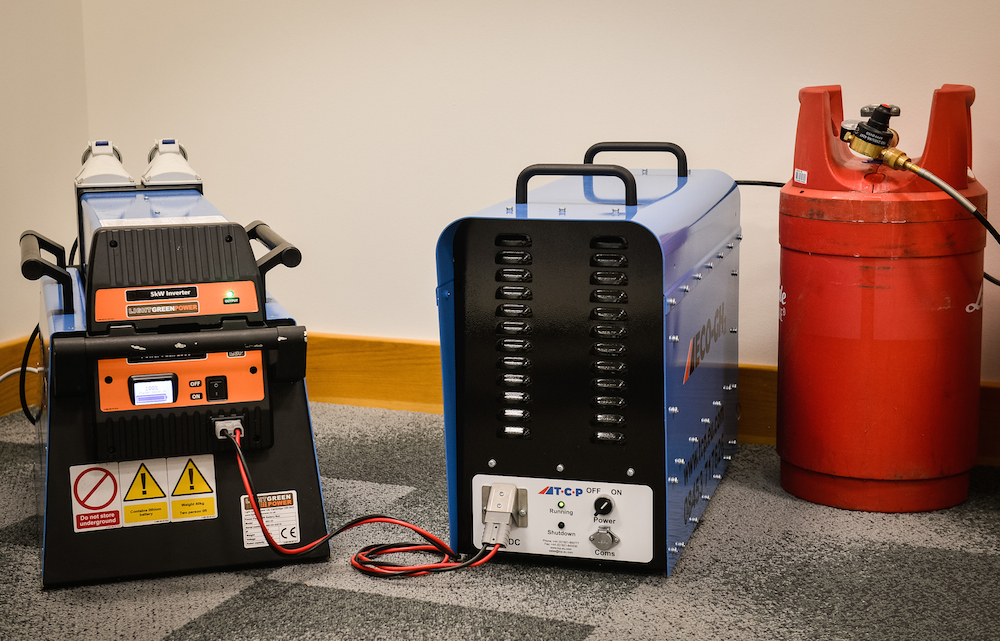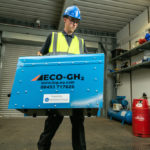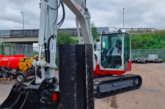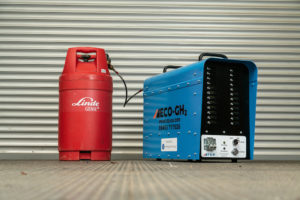 Construction Plant News investigates the viability of hydrogen fuel cells as a solution for stationery power
Construction Plant News investigates the viability of hydrogen fuel cells as a solution for stationery power
It is the most abundant element in the universe and amongst the most likely candidates to provide a clean and inexhaustible supply of renewable energy. Hydrogen fuel cells have multiple applications and have already entered the construction plant sector, with Taylor Construction Plant (TCP) championing their use in its lighting towers, but a Loughborough-based high technology company is partnering with them to take the concept still further.
So what exactly is a fuel cell? Effectively the unit’s combine hydrogen and oxygen from the air to produce clean electricity with zero emissions. Having emerged as a research project at the Leicestershire academic institution, Intelligent Energy is now busy commercialising that concept, with construction firmly in their sites, and with legislators championing the likes of low emission zones in our inner cities, a solution that produces no pollution in operation at all clearly has its appeal. “Fuel cell power is a real alternative to diesel and we are now partnering with TCP to provide stationery power using the technology,” explains Product Manager, Jim Irvine. “Not only is it zero emissions, but silent in operation and, given that very little maintenance is required, running costs are also reduced.”
Indeed, many of the maintenance regimes all too familiar to plant hirers and contractors can be tossed aside; there’s no more changing the oil every 500 hours, for instance, or checking filters or belts, which means a unit can pay for itself just on the savings in servicing alone in a relatively short space of time. Not only that but a fuel cell’s lifespan could extend beyond 8,000 hours and, unlike their internal combustion engine (ICE) counterparts, the machines can be run through the night, and can be used indoors or in enclosed spaces, whilst there’s no chance of an environmentally damaging fuel spill.
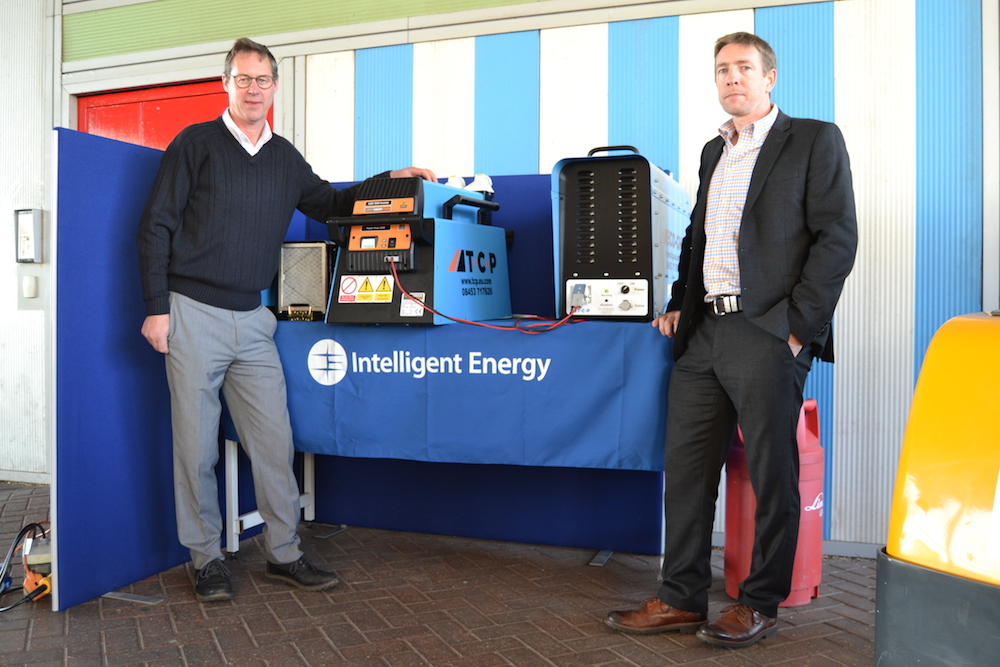
All of these benefits come together in the FCM 800 fuel cell module range, which includes the FCM-801 1.2kW, FCM-802 2.4kW and FCM-804 4kW. This is a scalable technology where units can be combined to provide greater outputs, whilst it can also be hybridised with the addition of a battery pack, which is then charged by the fuel cell. It is that hybrid solution which the materials handling sector is finding a particularly useful weapon in the fight to improve productivity and reduce downtime. Unlike using electric power alone there’s no need for any equipment to be removed from operation for charging – just like any ICE vehicle you simply fuel it and go.
The product developed in conjunction with TCP, the ECO GH2 is a hydrogen DC power generator that makes use of the FCM-801. The unit can be used with DC power loads, or with a TCP inverter power pack, to produce an off grid AC generator of 5kW for power tools, accessories and welfare units. It is cleaner, smaller and lighter than any comparable diesel or petrol model, produces nothing more than warm air and some moisture in use, is robust and will start first time.
“There is now increasing pressure on construction firms to demonstrate their sustainability credentials, and the appetite for an alternative to Diesel is already there,” continues Intelligent Energy marketing manager, Debbie Hughes. “Not only that, but this is a proven technology which we already supply to a number of industries, and that’s what makes it a viable solution.
So clearly the contention is that this is a product of the here and now but what is the potential for a hydrogen-powered tomorrow? Where original equipment manufacturers are presently investing in the development of electric compact machinery, Intelligent Energy envisages that these could just as easily feature the hybrid combination of hydrogen fuel cell and battery pack that is already emerging in materials handling. “Advances in battery technology simply haven’t kept pace with that of fuel cells and eventually we will approach the limits of the technology,” concludes Jim. “It is at that point that the latter will take over because, with the political pressure to tackle or pollution crisis intensifying, there simply won’t be any choice.”
